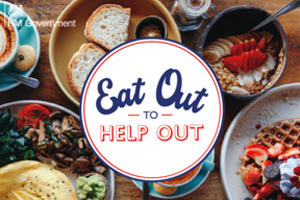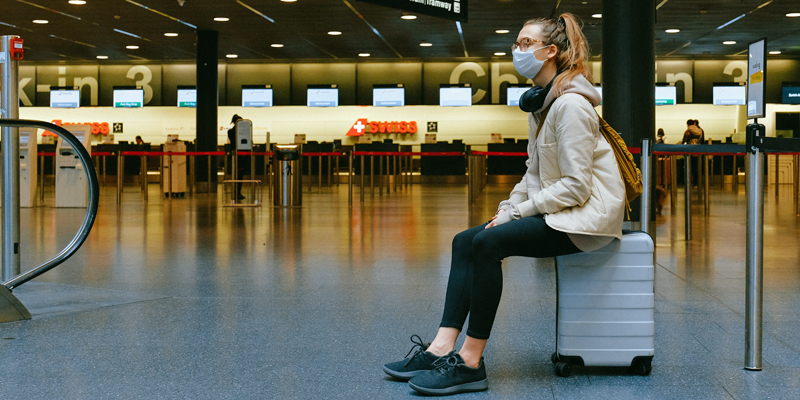Dr Duncan Brown is an author, researcher and government adviser with 30 years’ experience working in major HR consultancies and employment institutes. He also spent five years as the deputy CEO at the CIPD. His clients have included Shell, the Cabinet Office, the Department of Health, Unicef UK and the Fairtrade Foundation.

“…we not only need gender pay reporting fully restored, but it needs to be extended to cover ethnicity and disability…”
Introducing the micro-dilemma

All real micro-dilemmas in the Brown household this past week as the realisation slowly dawns on us that, even with the incredible advances on the vaccine front led by Professor Sarah Gilbert, a V-shaped return and recovery to business and life as usual is ‘unlikely to put it mildly’ according to economist Kallum Pickering studying the Bank of England’s latest forecasts. They will be different in the months and years ahead, and we probably are and will be too, as we slowly venture out from our lockdown home-chrysalis into the wider world again.
A Low Touch lockdown
I was lucky enough to take part in female community and digital magazine Womathology’s recent podcast on gender balance, alongside Jennifer Tsitsopoulos from strategy and business design company Board of Innovation, who introduced me to the concept they have researched of the Low Touch Economy. As Jennifer explains there, like all the best ideas, it is a pretty obvious one and does what it says on the tin, helping to think through the economic consequences of continuing levels of low interpersonal and social contacts with a focus on the impact on consumer and business behaviour.
Listening on Radio 4’s In Business this week to the catastrophic effect of the virus and lock down on Crawley, ‘possibly the worst-affected urban centre in the UK’, with a distinctly quiet in all senses Gatwick airport on its doorstep, you might think that this impact is all bad. But Jennifer stresses that:
“That’s not to say this new world will be better or worse. Just different. With many isolation-induced behaviours becoming ingrained habits that usher in a whole new set of societal norms. During this period of influx, some businesses will thrive in this change and reach accelerated success, while others will struggle to find their footing in all of the chaos.”
At its core, in fact, is a positive message, that we as individuals and society are pretty adaptable when we need to be and so its about planning for and taking advantage where we can of this shift, rather than passively being steamrollered into oblivion by it.
And as I was thinking through the impact of this low touch economy and society on my work area of people, HR and diversity management I went through a similar progression in my thinking, from overwhelmingly negative to guardedly positive.
Remember that optimism early in lockdown, that ‘all over the planet, we are pulling together in a massive way’ (BP’s chief executive Bernard Looney); that ‘our solidarity means when the crisis is over we must be determined to build a better society’ (the TUC’s Frances O’Grady); and that it must be ‘never again’ (historian Peter Hennessey) in terms of our amazing keyworker’s appallingly low pay and insecure contracts; ‘There needs to be a new social contract for business, a deal that works for all, not just the few’ according to The Financial Times editors.
Low paid, highly unequal impact
Yet from an employment and equality perspective, you don’t have to look very hard for evidence of the overwhelmingly detrimental impact of the crisis so far, and of the government and employers’ responses to it, on the health, wellbeing and experience of the UK’s workforce and key groups within it.
The virus itself, if you are unfortunate enough to catch it, may kill overweight white males just as equally, if not more effectively, than their lower-paid female counterparts. But the virus has in many ways intensified existing inequalities, with low paid jobs such as care workers, predominantly held by women and with heavy BAME-over-representation, suffering both the worst health (in terms of highest mortality rates from the virus and lowest levels of sick pay plan coverage) and economic outcomes (likelihood of being furloughed and made redundant).
According to the TUC, ‘this crisis has exposed – and exacerbated – glaring inequalities in the UK labour market – a new class divide’; while Citizens Advice similarly characterises ‘an unequal crisis’ with mothers, the disabled and carers more likely to be furloughed, made redundant and denied their full employment rights
The government’s responses meanwhile, highlighted most disgracefully the cancelling of this years’ gender pay reporting requirements on employers just a week before the annual deadline, appears to have been largely blind to the possibilities of unequal outcomes. Hence the three inequality inquiries launched by the House of Commons’ Women and Equality Committee in June.
Chair Caroline Nokes summarised the situation pithily:
“Evidence shows that the economic impact has been experienced differentially by women – and in many respects, more severely. Women are more likely to have primary responsibility for childcare. They are more likely to work in the service sector, and to be in insecure or zero hours work. And more likely to be more dependent on social security, and in insecure housing. They are over-represented in jobs which are not eligible for statutory sick pay.”
Early lockdown puff in coffee table magazines and from the technology vendors about the benefits to working women of everyone homeworking, and of their bosses and husbands finally recognising what a thankless and unrewarding job their occupational and domestic multi-tasking really is; with ‘eminent people (i.e. men) with a laundry basket on their desk (horrors!)’, has been blown away by the statistics on the reality.
These reveal in fact: a ‘motherhood penalty made worse by the effects of the pandemic’, with women taking on average two-thirds more of the daily childcare duties with schools in shutdown than men. They show worsening mental health especially amongst women, with two-thirds of us according to the Health Foundation worried or very worried about the effect of COVID-19 on our lives. And they record escalating domestic violence as evidenced by the major jump in calls to the National Domestic Abuse helpline during lockdown. It is, according to The Atlantic magazine, a ‘disaster for feminism’.
The paradox of the pandemic: Saints as well as sinners

Yet, as MCI’s chief executive and equality champion Ann Francke put it in her accompanying blog ‘the paradox of the pandemic’ is that ‘the growing reliance on technology’ and our lives stuck in front of our screens ‘may bring us close together’.
Senior vice-president Maggie Buggie at technology solutions business SAP told her that at least in their company ‘leadership has become more human’, communications actually improved; and the question ‘how are you and acceptance that ‘its ok not to be ok’’ become widely normalised.
Yes we have seen the fraudsters and corporate ‘sinners’ like Sports Direct and BA abusing government support schemes and treating their staff badly. Or US supermarket chain Kroger which discontinued its much-publicised “hero pay” – the extra $2 an hour it introduced in April for its minimum wage keyworkers – after barely a month, even though the company’s sales had immediately gone up by 30% on last year in lockdown.
The choice to care
But the pandemic has also highlighted the modern-day angels and saints. Like Bet365, which announced in late March a multi-million-pound support package for its 4,400-strong workforce, with guaranteed earnings for five months and no job losses. Chief executive Denise Coates may be one of the few women in the list of the UK’s best-paid executives, but she has personally donated £10m to her local NHS trust.
More widely, REBA’s latest employer survey on HR responses to the pandemic shows two-thirds of employers increasing their spending on employee benefits programmes, with enhanced employee assistance and wellbeing programmes most evident, and with a third enhancing healthcare services, such as virtual GP support helplines. 88% of respondents report an increase in mental health discussions at senior management level and 71% are planning to increase how much they spend on supporting employees’ mental health and financial wellbeing over the next 12 months.
The TUC and Citizens Advice are right that the pandemic has highlighted fundamental weaknesses in an austerity-ravaged welfare state. We need improved sick pay, childcare and mental health support, employment rights for low paid and precarious keyworkers; and also their enforcement, with retailer Boohoo’s remarkable growth in sales of its cheap clothing shown to have been based on illegally underpaid and exploited workers in its Leicester supply chain.
The Board of Innovation report highlights how information and its transparency will become even more important in the low touch economy. So, we not only need gender pay reporting fully restored, but it needs to be extended to cover ethnicity and disability. And employers need to be forced to publish a much wider range of people management statistics – the numbers of workers on minimum wages and zero-hours contracts, their sick pay and maternity policies, rates of absenteeism and staff turnover – so that we as consumers, investors, possibly future employees, and as a society can choose which organisations we want to invest in and support.
As Jennifer emphasises, while we can’t predict the future in such a scarily uncertain crisis, we all have choices here: to go out and start to live again, or to stay at home; to invest in our people and their wellbeing, or cut them; to prioritise and address the unfairness and inequality issues in our society and organisations heightened and brought into greater visibility by the pandemic, or to continue to ignore them. Low touch can still be high communications, care and compassion.
CIPD’s Peter Cheese exhorts us Obama-like to ‘not let a good crisis go to waste. Rather, let’s use it to build the world of work we want to see’. So, what are you going to choose to do tomorrow?





